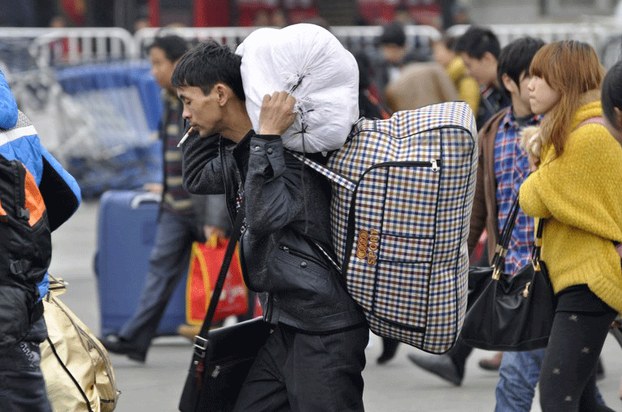




As many as 200 million Chinese citizens live below the international poverty line of U.S.$1.25 a day, a top official revealed on Wednesday.
While the ruling Chinese Communist Party's own figures show just 82 million people are living below its poverty line of U.S.$1 a day, many more are considered to be in poverty by international standards used by the World Bank.
"Up to the end of 2013, demographically, 82.49 million people are still trapped in poverty according to China's poverty line, and 200 million according to the international one," Zheng Wenkai, vice-minister of the State Council Office of Poverty Alleviation and Development, told local media.
"It's a tough nut to crack. Poverty is a weak point for our goal of building a moderately prosperous society in all respects by 2020," Zheng was quoted as saying by the English-language Global Times, which has close ties to party mouthpiece The People's Daily.
Some 120,000 villages across 832 Chinese counties are listed as poverty-stricken, Zheng said.
Those who live there lack access to running water, electricity and good roads, as well as being in desperate need of better healthcare and education, he said.
He said many of the poorest regions of China are also those that are vulnerable to natural disasters, and have poor infrastructure.
The news came after an International Monetary Fund (IMF) report predicted that the Chinese economy will surpass that of the U.S. by the end of the year in terms of purchasing power.
China's gross domestic product (GDP), a broad measure of the nation's output of goods and services, is expected to top U.S.$17.63 trillion, compared to the U.S.'s $17.41 trillion economy, while Chinese people control 16.48 percent of the world's purchasing power, compared with the U.S.' 16.28 percent, the report said.
Fairly accurate
Professor Xie Tian of the University of South Carolina said he believes Zheng's estimate is fairly accurate.
"China's poverty-stricken population...is below 20 percent of the total population," Xie said.
He said rapidly rising consumer prices in the past three years have made a nonsense of poverty alleviation funds.
A China-based writer, who gave only his surname Liu, said China's poorest people are often in a worse situation with regard to access to healthcare and education than many others on a lower income around the world.
"These are people with nothing to fall back on whatsoever," Liu said. "They have no education and haven't been prescribed medicines in their entire lives."
"They also don't have proper water or sanitation."
Complex factors
He said the factors contributing to poverty in China are complex, often involving remote regions and a concentration of power with the central government in Beijing.
"This means that the remedial steps they take don't always take effect where they are supposed to," Liu said. "China has no democracy, so its system can't respond with policies that suit the situation on the ground."
According to Liu, many more counties are poverty-stricken than are recorded by Zheng's office.
"Many of them don't want the stigma of being labeled a poverty-stricken county, but they actually need the subsidies," he said.
Meanwhile, Xie said many people are prevented from finding better lives elsewhere by China's "hukou," or household registration system, which shuts migrant workers out of social services and education outside their birthplace.
"The movement of population is a natural process that can wipe out poverty," Xie said. "If you force farmers and mountain-dwellers to stay on their own land, you are preventing [this from happening]."
"Of course, if they flood into cities, then the government is faced with a different sort of poverty, but it's easier to deal with because the people are all concentrated in one place," he said.
"But China is a dictatorship, so this is a systemic problem."
Reported by Shi Shan for RFA's Mandarin Service. Translated and written in English by Luisetta Mudie.